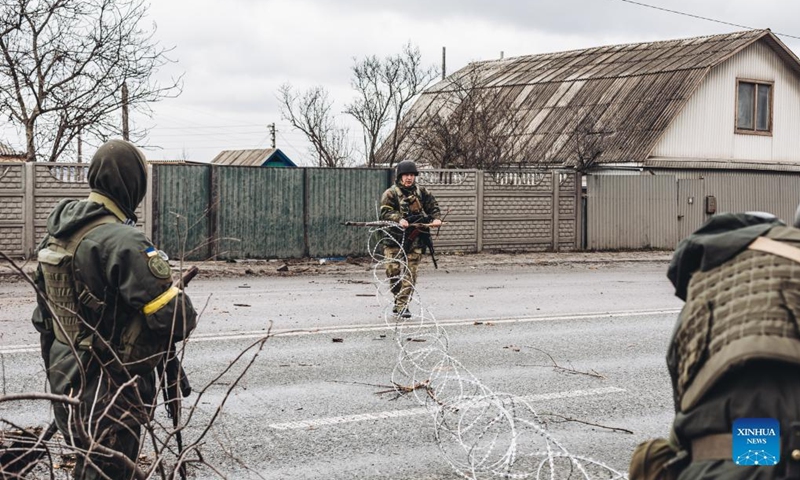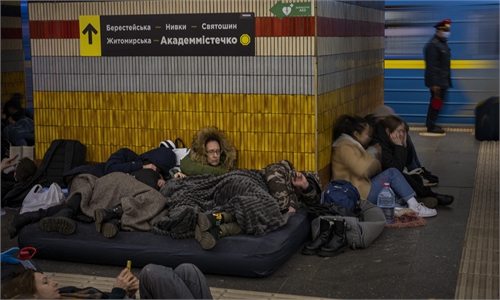Sina Weibo punishes accounts for spreading content on Russia-Ukraine conflict to stir up hatred, warfare

Ukrainian soldiers set up roadblocks in Irpin, Ukraine, on March 4, 2022.Photo:Xinhua
Click here to stay tuned with our live updates on Ukraine tensions.Targeting the crackdown on circulated vulgar content on the Russia-Ukraine situation, Chinese social media platform Sina Weibo traced the sources of the information and punished 1,000 accounts that took advantage of the situation to release extreme content to stir up hatred, warfare regularly.
Contents like "Chinese sick of Ukraine" and "taking in Ukraine beauties" were firstly widely circulated on overseas social media platforms before February 21, and were introduced to Chinese social media after the Russia-Ukraine situation escalated on February 24, Sina Weibo said in a statement late Saturday.
Among users who participated in the discussion of the Russia-Ukraine situation, several individual accounts were found posting comments that exaggerate and stir up warfare, resulting in negative impact on Weibo, it said.
Users including Qinghuadaxueboshisheng and Chishishaonvfenggeji, whose accounts have the most circulation of such contents, and four other marketing accounts that viciously use such topics to get attention were punished accordingly. Some 1000 normal accounts that also violated the rules of Weibo were given punishment in accordance with their severeness, according to Weibo.
Previously, observers revealed that vulgar remarks concerning Ukraine made by a very small portion of netizens on China's social media -- which have been overwhelmingly criticized in China -- are wrongly amplified online, and the real instigators of hyping "confrontation between Chinese netizens and Ukraine people" were from Taiwan and Xinjiang separatist forces.
For a time, the outside world including Ukrainians wrongly interpreted the vulgar content that come from some individual irrational netizens and hype generated by separatist forces as a voice representing a majority of Chinese citizens.
Global Times

